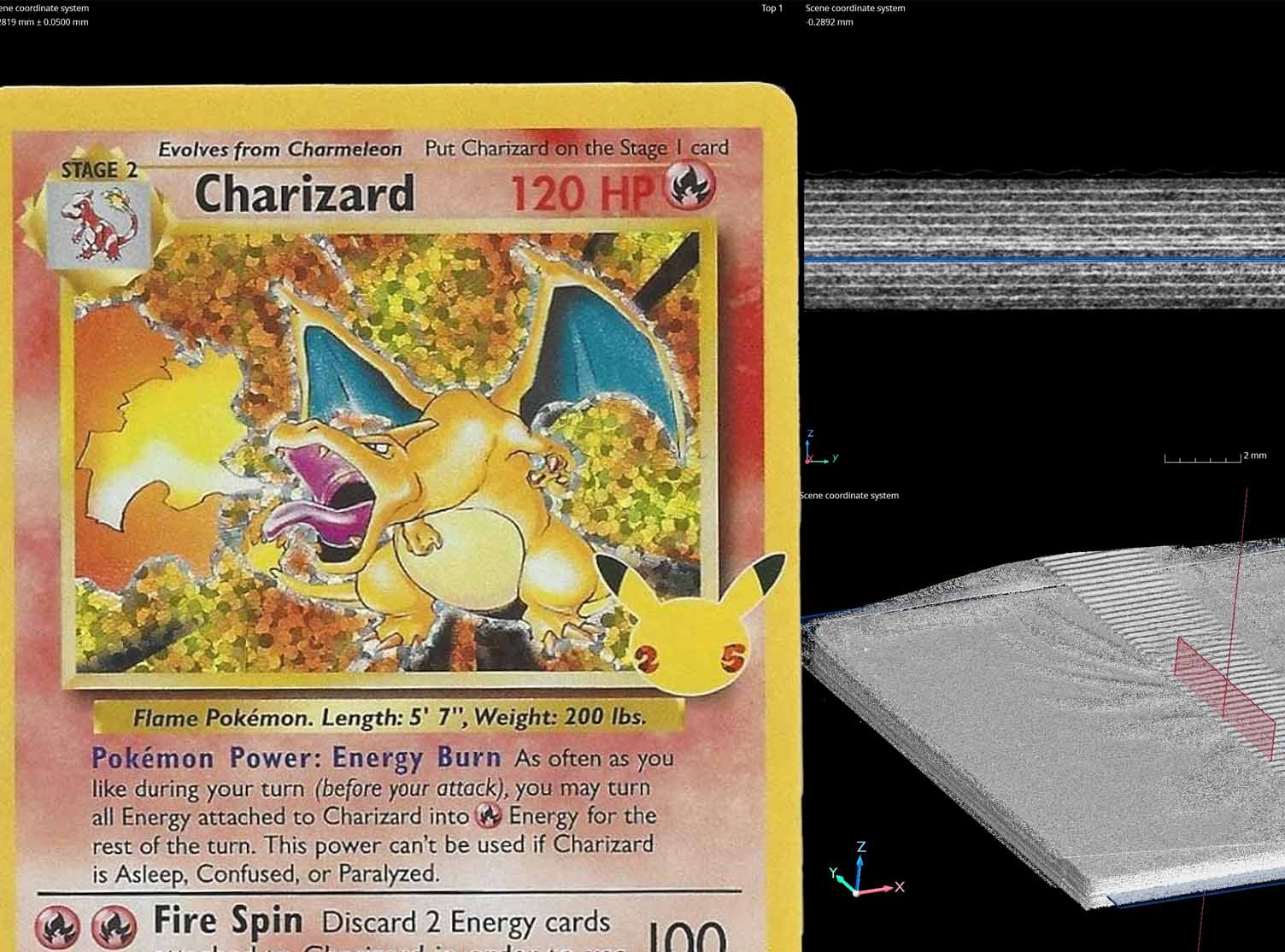
Industrial Inspection Launches Card X-Ray Service
In a surprising move, Industrial Inspection & Consulting has ventured into a new territory by offering CT scanning services for sealed packs of trading cards at a cost of $75 per pack. Originally intending to showcase the precision of their CT scanning technology, the company found itself at the center of discussion within the collecting community due to this unexpected service offering.
The buzz around Industrial Inspection began when they conducted a CT scan on a sealed pack of Pokémon cards, demonstrating the capabilities of their technology. Despite their initial statement of having no plans for a card scanning service, the company changed course recently, adding trading cards to their portfolio of CT scanning services.
For a fee of $75, Industrial Inspection provides CT scans of sealed packs of trading cards along with the necessary viewing program to examine the contents. Plans are in motion to expand this service to include scanning sealed boxes as early as this week.
The introduction of this technology has elicited mixed reactions from the collecting community. While some express skepticism about the widespread acceptance of the service, citing its relevance mainly to high-end products, others question whether collectors possess the expertise to interpret the scans accurately.
Keith Irwin, the general manager at Industrial Inspection, shared that the company received an influx of ten requests to scan packs within the first two hours of posting their initial case study on YouTube. Subsequently, their website experienced a remarkable surge in traffic by over 17,000 percent.
Despite receiving numerous inquiries primarily about the technology’s capabilities, Irwin refrained from divulging further details due to non-disclosure agreements. Speculations are rife that group breakers may leverage this technology to identify and retain the best boxes, while some are considering its application for authenticating sealed vintage boxes.
Concerns loom within the collecting community regarding the implications of this technology. Prior to the case studies, many collectors were unacquainted with the utilization of X-ray technology in this manner, sparking intense debate surrounding the $75 scanning offer.
While a segment of the community condemns the practice, Irwin and Industrial Inspection emphasize the importance of making the service accessible to all collectors, not exclusively to high-end enthusiasts. They stress their aspiration to act as ethical actors in an evolving landscape.
The ethical dimensions arising from the introduction of this service prompt contemplation of collaborating with auction houses or authenticators for positive outcomes while safeguarding individual collectors’ access. The distinction between favorable and unfavorable applications remains a challenging conundrum.
Irwin reflects on the overarching question of the repercussions if Industrial Inspection refrains from offering this service, highlighting the inevitability of others stepping in. The potential impact on the secondary market, especially for high-end products, is a focal point of concern.
As the lingering inquiries directed to major trading card manufacturers such as Panini America, Topps, and Upper Deck remain unanswered, uncertainty shrouds the preventive measures in place for customers’ protection.
Looking into the future, Irwin mentions the viability of Industrial Inspection without the card scanning service, underscoring its revenue potential. A conceivable resolution for card manufacturers could involve utilizing dosimeter stickers that change color upon radiation exposure, indicating if a box has undergone scanning.
With plans to continue scanning packs and later boxes, Industrial Inspection also contemplates scanning encapsulated sealed packs for collectors intending to open them. The ethical and moral dilemmas persist as the company acknowledges the impact of their actions on the collecting community.
Reflecting on the community’s stirred emotions, Irwin acknowledges the pivotal role played by Industrial Inspection in revealing this service. The decision to offer the service openly stems from a conviction that secrecy could lead to more dubious practices. The company finds itself in a precarious position, balancing between inaction and the consequences of their actions in an evolving landscape of card scanning services.